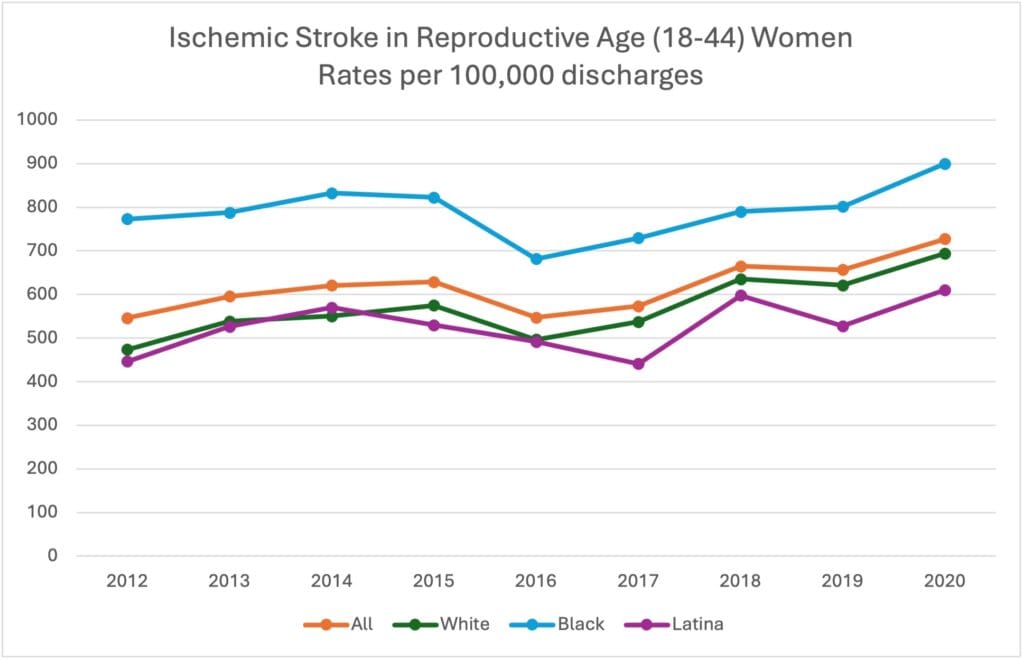Women’s Health
Racial Disparities in Ischemic Stroke in Women of Reproductive Age Kara Christopher* Kara Christopher Gunjanpreet Kaur Rachel Overberg Mollie Hoffmeyer Wilson Rodriguez
Background: Previous studies have found that women aged 18-44 have higher risk of stroke than men of the same age. However, few studies have examined trends and disparities in stroke rates in women of reproductive age. The objective of the current study was to examine trends and disparities in ischemic stroke among women of reproductive age.
Methods: In this cross-sectional study, we utilized the National Inpatient Sample from 2012-2020 to examine overall and stratified trends in ischemic stroke rates. Women with a pregnancy-related diagnosis were excluded from the sample. Rates per 100,000 discharges were calculated. Logistic regression was conducted for trend analysis, with 2020 as the reference year.
Results: Figure 1 shows the rates of ischemic stroke over time. There is an overall increase in rates of ischemic stroke between 2012 and 2020, with an absolute difference of 181 cases per 100,000 discharges between 2012 and 2020. Black women had significantly higher rates of ischemic stroke in all years compared to white women (p<.001). In the non-stratified trend analysis, the rate of stroke was significantly lower in all previous years compared to 2020. Further, in race stratified analysis, this trend continued for all racial groups. Black women had lower odds of stroke (p<0.05) in most years, apart from 2014 (OR=0.92, 95%CI 0.83, 1.02) and 2015 (OR=0.19, 95%CI 0.82, 1.02). Similarly, rates in Latinas were lower in most years apart from 2014, 2015, and 2018.
Conclusion: Rates of ischemic stroke among women of reproductive age, while low, have increased over time, especially in Black women. There are several possible explanations for this difference, including evaluation of socioeconomic factors and obesity rates, and increased amount of co-morbid conditions often seen in the Black population. It has also been shown that gender and racial bias within healthcare combined negatively impacts health, specifically among Black women. Longitudinal studies are needed to clarify the increasing trend of ischemic stroke in this population.

